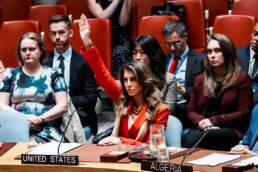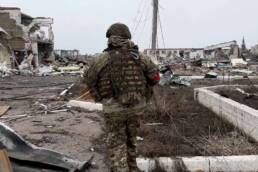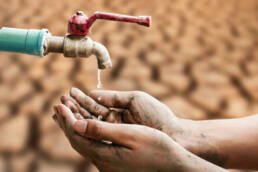المصادر:
(*) نُشرت هذه الدراسة في مجلة المستقبل العربي العدد 463 في أيلول/ سبتمبر 2017.
(**) محمد حليم ليمام: أستاذ في كلية العلوم السياسية والعلاقات الدولية، جامعة الجزائر الثالثة.
[1] على الرغم من كثافة الدراسات والأبحاث في الفساد، إلا أن الموضوع لا يزال ساخناً، وتثير جوانبه المختلفة اهتمام المنظرين في شتى بلدان العالم، وبخاصة في ما يتعلق بالأسباب الكامنة وراء تغلغل الفساد في بلدان وضعت حزمة من الإصلاحات لاجتثاث المرض. بعضهم وجد في القصور الذي يشوب المداخل النظرية المفهومية لظاهرة الفساد السبب في فشل سياسات مكافحته، لأن معظمها انطلق من مفهوم يعرّف الفساد بأنه «مشكلة رئيس – وكيل» (Principal-agent Problem). للاستزادة، انظر: Anna Persson, Bo Rothstein and Jan Teorell, «Why Anticorruption Reforms Fail? Systemic Corruption as a Collective Action Problem,» Governance, vol. 26, no. 3 (July 2013), pp. 449‑471.
[2] Jong-sung You, Democracy Inequality and Corruption: Korea, Taiwan and the Philippines Compared (New York: Cambridge University Press, 2015), p. 22.
[3] انظر: Paul M. Heywood and Jonathan Rose, «Curbing Corruption or Promoting Integrity? Probing the Hidden Conceptual Challenge,» in: Peter Hardi, Paul M. Heywood and Davide Torsello, Debates of Corruption and Integrity Perspectives from Europe and the US (London: Palgrave Macmillan, 2015), pp. 113‑114.
[4] Christian von Soest, «Persistent Systemic Corruption: Why Democratisation and Economic Liberalisation Have Failed to Undo an Old Evil. A Six-Country Analysis,» in: Tobias Debiel and Andrea Gawrich, eds., [in collaboration with Holger Niemann], «(Dys-) Functionalities of Corruption: Comparative Perspectives and Methodological Pluralism,» Comparative Governance and Politics, no. 3 (December 2013), pp. 57‑87.
[5] لاري دايموند، روح الديمقراطية: الكفاح من أجل بناء مجتمعات حرة، ترجمة عبد النور الخراقي (بيروت: الشبكة العربية للأبحاث والنشر، 2014)، ص 450.
[6] المصدر نفسه، ص 451.
[7] Jan Teorell, «Corruption as an Institution: Rethinking the Nature and Origins of the Grabbing Hand,» Göteborg University, Department of Political Science, The Quality of Government Institute, QoG Working Paper Series, 2007: 5 (November 2005), p. 3, <http://www.qog.pol.gu.se/digitalAssets/1350/1350653_2007_5_teorell.pdf>.
[8] Douglass C. North, «Institutions,» The Journal of Economic Perspectives, vol. 5, no. 1 (Winter, 1991), p. 97.
[9] انظر: Jean-François Médard, «Les Paradoxes de la corruption institutionnalisée,» Revue Internationale de politique comparée, vol. 13, no. 4 (2006), p. 697.
[10] دايموند، روح الديمقراطية: الكفاح من أجل بناء مجتمعات حرة، ص 401، وDonatella Della Porta and Alberto Vannucci, The Hidden Order of Corruption: An Institutional Approach (London: Ashgate Publishing Limited, 2012), p. 2.
[11] حول ماهية الأنظمة السلطوية وأنماطها، انظر: Jan Teorell, Determinants of Democratization Explaining Regime Change in the World, 1972-2006 (New York: Cambridge University Press, 2010), chap. 6, and Steven Levitsky and Lucan A. Way, Competitive Authoritarianism Hybrid Regimes After the Cold War (New York: Cambridge University Press, 2010), pp. 5‑32.
[12] انظر: Eric C. C. Chang and Miriam A. Golden, «Sources of Corruption in Authoritarian Regimes,» version 3.4 (February 8, 2009), p. 5, <http://ssrn.com/abstract=1339972>, and Jennifer Gandhi and Adam Przeworski, «Authoritarian Institutions and the Survival of Autocrats,» Comparative Political Studies, vol. 40, no. 11 (November 2007), pp. 1279‑1301.
[13] انظر: Jennifer Gandhi and Adam Przeworski, «Cooperation, Cooptation, and Rebellion Under Dictatorship,» Economics and Politics, vol. 18, no. 1 (March 2006), and Joseph Wright, «Do Authoritarian Institutions Constrain? How Legislatures Affect Economic Growth and Investment,» American Journal of Political Science, vol. 52, no. 2 (April 2008), pp. 328‑329.
[14] للتفصيل، انظر: منصور أولسون، السلطة والرخاء: نحو تجاوز الدكتاتوريتين الشيوعية والرأسمالية، ترجمة ماجدة بركة؛ مراجعة وتقديم محمود عبد الفضيل، سلسلة علوم إنسانية واجتماعية (بيروت: المنظمة العربية للترجمة، 2003)، ص 51 – 59.
[15] انظر: بروس بيونو دو مسقيتا وألستير سميث، دليل الاستبداد والمستبدين: الفساد سبيـلاً للاستيلاء على السلطة والحفاظ عليها، ترجمة فاطمة نصر (القاهرة: الهيئة العامة المصرية للكتاب، 2014). انظر أيضاً: Bruce Bueno de Mesquita and Alastair Smith, The Dictators Hand Book: Why Bad Behavior is Almost Always Good Politics (New York: Public Affairs, 2011).
[16] انظر: Bruce Bueno de Mesquita [et al.], «Political Institutions, Policy Choice and the Survival of Leaders,» British Journal of Political Science, vol. 32 (2002), p. 516.
[17] زهير فريد مبارك، أصول الاستبداد العربي (بيروت: مؤسسة الانتشار العربي، 2010)، ص 252.
[18] للاستزادة، انظر: Bruce Bueno de Mesquita [et al.]: «Political Institutions, Policy Choice and the Survival of Leaders,» p. 559, and The Logic of Political Survival (Cambridge, MA: The MIT Press, 2003), pp. 44‑47.
[19] Jean François Bayart, L’État en Afrique: La Politique de Ventre (Paris: Fayard, 1989).
[20] Hugh Roberts, «Pouvoir Maquisard, Parti(s) de Façade et Projet d’Édification d’un État: L’Expérience Algérienne,» papier présente à: Colloque International El-Watan, Alger, 5‑7 juillet 2012, et El-Watan, 8/7/2012.
[21] محمد عبد الباقي الهرماسي، المجتمع والدولة في المغرب العربي، مشروع استشراف مستقبل الوطن العربي. محور «المجتمع والدولة»، ط 3 (بيروت: مركز دراسات الوحدة العربية، 1999)، ص 15.
[22] انظر: المصدر نفسه، ص 18، ومحمد عابد الجابري، فكر ابن خلدون، العصبية والدولة: معالم نظرية خلدونية في التاريخ الإسلامي، ط 7 (بيروت: مركز دراسات الوحدة العربية، 2001)، ص 216.
[23] عبد القادر جغلول، الإشكاليات التاريخية في علم الاجتماع السياسي عند ابن خلدون، ترجمة فيصل عباس، ط 3 (بيروت: دار الحداثة، 1986)، ص 139.
[24] الهرماسي، المصدر نفسه، ص 21.
[25] أبو القاسم سعد الله، الحركة الوطنية الجزائرية، 1830 – 1900 (بيروت: دار الغرب الإسلامي، 1992)، ج 1، ص 20.
[26] انظر: محفوظ قداش، جزائر الجزائريين، 1830 – 1954، ترجمة محمد المعراجي (الجزائر: منشورات آنيب، 2008)، ص 73.
[27] William B. Quandt, Société et Pouvoir en Algérie: La Décennie des Ruptures, traduit par M’hamed Bensmmane [et al.] (Alger: Casbah Edition, 1999), p. 27.
[28] مقتبس من: خطاب ألقاه لخضر بن طوبال في شباط/فبراير 1960. انظر: Mohammed Harbi, Le FLN Mirage et Réalité: Des Origines à la Prise du Pouvoir 1945‑1962 (Paris: Jeune Afrique, 1985), pp. 350‑351.
[29] Mohammed Harbi, «L’Hypothèse Totalitaire en Algérie: Le Cas du FLN 1954‑1962,» El Watan, 29/3/2012.
[30] انظر: Lahouari Addi, L’Impasse du Populisme: l’Algérie Collectivité Politique et État en Construction (Alger: ENAL, 1990), p. 69.
[31] في هذا، انظر: Amos Perlmutter, «The Praetorian State and the Praetorian Army: Toward a Taxonomy of Civil-Military Relations in Developing Polities,» Comparative Politics, vol. 1, no. 3 (April 1969), pp. 282‑404.
[32] Mohammed Hachemaoui, «La Corruption Politique en Algérie: L’Envers de l’Autoritarisme,» ESPRIT (juin 2011), pp. 122‑126.
[33] Isabelle Werenfels, Managing Instability in Algeria: Elites and Political Change Since 1995 (London: Routledge, 2007), p. 34.
[34] John P. Entelis, «Algeria: Democracy Denied, and Revived?, » The Journal of North African Studies, vol. 16, no. 4 (December 2011), p. 660.
[35] هيثم غالب الناهي، الدولة وخفايا إخفاق مأسستها في المنطقة العربية (بيروت: مركز دراسات الوحدة العربية، 2016)، ص 147.
[36] حول مفهوم البتريمونيالية الجديدة، انظر: Anne Pitcher, Mary H. Moran and Michael Johnston, «Rethinking Patrimonialism and Neopatrimonialism in Africa,» African Studies Review, vol. 52, no. 1 (April 2009), pp. 125‑156.
[37] انظر: برتراند بادي وغي هيرمت، السياسة المقارنة، ترجمة عز الدين الخطابي؛ مراجعة نادر سراج (بيروت: المنظمة العربية للترجمة، 2013)، ص 366.
[38] انظر: Miriam R. Lowi, Oil Wealth and the Poverty of Politics: Algeria Compared (London: Cambridge University Press, 2009), pp. 179‑180.
[39] Isabelle Werenfels, «Beyond Authoritarian Upgrading: The Reemergence of Sufi Orders in Maghrebi Politics,» The Journal of North African Studies, vol. 19, no. 3 (2014), p. 276.
[40] François Gèze, «Françalgérie: Sang, intox et corruption,» Mouvements, nos. 21‑22 (mai- août 2002), p. 72.
بدعمكم نستمر
إدعم مركز دراسات الوحدة العربية
ينتظر المركز من أصدقائه وقرائه ومحبِّيه في هذه المرحلة الوقوف إلى جانبه من خلال طلب منشوراته وتسديد ثمنها بالعملة الصعبة نقداً، أو حتى تقديم بعض التبرعات النقدية لتعزيز قدرته على الصمود والاستمرار في مسيرته العلمية والبحثية المستقلة والموضوعية والملتزمة بقضايا الأرض والإنسان في مختلف أرجاء الوطن العربي.



